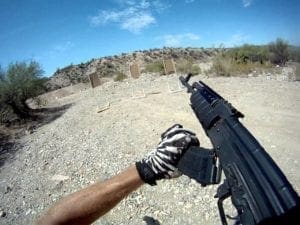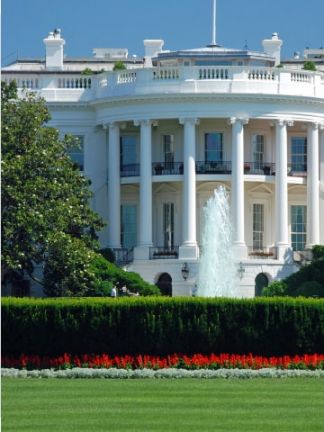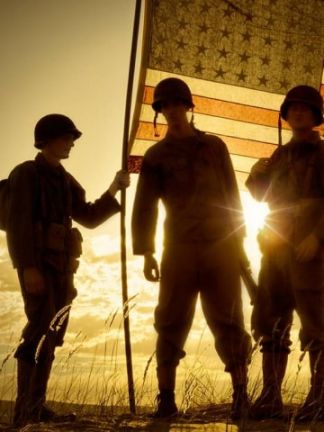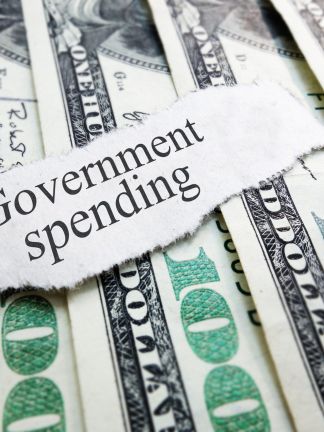The Good and the Bad of Donald Trump’s White Paper on Guns

Published in Elections and Politics - 5 mins - Sep 22
The Good and the Bad of Donald Trump’s White Paper on Guns
This article was featured in our weekly newsletter, the Liberator Online. To receive it in your inbox, sign up here. Republican presidential candidate Donald Trump has shifted away from his previous support of some gun control policies, including longer waiting periods and a ban on “assault weapons.” Although his campaign is general devoid of any meaningful or specifics on policy, Trump released a white paper last week that offers support for the Second Amendment. The white paper opposes restrictions on firearms, such as “assault weapons,” that are usually targeted by the anti-gun left. But this is a departure for Trump, who, in his 2000 book, The America We Deserve, expressed support for a ban on this type of firearm.
“The Republicans walk the NRA line and refuse even limited restrictions,” Trump wrote. “I generally oppose gun control, but I support the ban on assault weapons and I also support a slightly longer waiting period to purchase a gun.” (Emphasis added.) Trump was, at the time, considering a bid for the Reform Party’s presidential nomination.
Today, Trump, as he does on many different issues, sings a different tune. “Gun and magazine bans are a total failure. That’s been proven every time it’s been tried. Opponents of gun rights try to come up with scary sounding phrases like ‘assault weapons’, ‘military-style weapons’ and ‘high capacity magazines’ to confuse people. What they’re really talking about are popular semi-automatic rifles and standard magazines that are owned by tens of millions of Americans,” Trump’s white paper states. “Law-abiding people should be allowed to own the firearm of their choice. The government has no business dictating what types of firearms good, honest people are allowed to own.”
He opposes expanded background checks and supports allowing the military to carry weapons on base and at recruiting centers. In the months after the Newtown tragedy, conservatives resisted a failed attempt to expand background checks, which wouldn’t have stopped that particular incident from occurring, and, after the recent shooting at a military recruiting center in Chattanooga, have expressed support for allowing recruiters to carry weapons on the job.
One particular policy proposed by Trump is likely to strongly appeal to conservatives. He supports “national right to carry,” which would make concealed carry permits valid in every state and the District of Columbia, much like a driver’s license. “A driver’s license works in every state, so it’s common sense that a concealed carry permit should work in every state,” Trump says. “If we can do that for driving – which is a privilege, not a right – then surely we can do that for concealed carry, which is a right, not a privilege.”
While this policy is attractive and worth of support – and at least three pieces of legislation have been introduced in the current Congress to achieve that goal – one aspect of Trump’s white paper is particularly troubling. He expresses support for a little known federal program, known as “Project Exile,” that existed in Richmond, Virginia in the 1990s.
“Several years ago there was a tremendous program in Richmond, Virginia called Project Exile. It said that if a violent felon uses a gun to commit a crime, you will be prosecuted in federal court and go to prison for five years – no parole or early release. Obama’s former Attorney General, Eric Holder, called that a ‘cookie cutter’ program. That’s ridiculous. I call that program a success,” the white paper states. “Murders committed with guns in Richmond decreased by over 60% when Project Exile was in place – in the first two years of the program alone, 350 armed felons were taken off the street.”
From 1993 to 2010, violent crime fell across the United States. The Pew Research Center found that the gun homicide rate fell by 49 percent from its peak level in 1993 and the victimization rate for other violent crimes committed with firearms, including rape, dropped by 75 percent.
“Nearly all the decline in the firearm homicide rate took place in the 1990s,” Pew noted, “the downward trend stopped in 2001 and resumed slowly in 2007. “ Theories on what caused the decline in crime rates vary, but economist Steven Levitt, known for the best-selling book, Freakonomics, has written that changes in policing strategies and gun control didn’t have much of an impact.
Project Exile was a federal program created in 1997 that targeted felons in possession of firearms. It brought these cases to federal court, where offenders faced a five-year mandatory minimum prison sentence.
Trump’s praise of Project Exile may be misguided. A 2003 study called into question its effectiveness as a deterrent to violent crime. “Despite this widespread acclaim, some skeptics have questioned the effectiveness of Project Exile, pointing out that homicides increased in Richmond in the last ten months of 1997 following the program’s announcement,” the authors explained. “In fact, the Richmond homicide rate increased by 40 percent between 1996 and 1997.”
Rep. Bobby Scott, D-Va., who represents part of Richmond and the surrounding area, blasted Project Exile in a speech on the House floor in April 2000. “The mandatory minimums associated with Project Exile show no better results. The proponents suggest that the violent crime rate has gone down 39 percent in the city of Richmond under Project Exile,” Scott said. “At the same time it went down 43 percent in Norfolk, 58 percent in Virginia Beach and 81 percent in Chesapeake without Project Exile.”
Trump’s white paper may offer a good idea, national right to carry, combined with fluff in contradiction to his previous statements, but programs like Project Exile are bad policy that are better handled under state law. What’s more, it defies logic. Violent crime is at its lowest point in the last couple decades. Unfortunately, the politics of fear are politicians need to succeed to win support from people who simply don’t know better.
The white paper opposes restrictions on firearms, such as “assault weapons,” that are usually targeted by the anti-gun left. But this is a departure for Trump, who, in his 2000 book, The America We Deserve, expressed support for a ban on this type of firearm.
“The Republicans walk the NRA line and refuse even limited restrictions,” Trump wrote. “I generally oppose gun control, but I support the ban on assault weapons and I also support a slightly longer waiting period to purchase a gun.” (Emphasis added.) Trump was, at the time, considering a bid for the Reform Party’s presidential nomination.
Today, Trump, as he does on many different issues, sings a different tune. “Gun and magazine bans are a total failure. That’s been proven every time it’s been tried. Opponents of gun rights try to come up with scary sounding phrases like ‘assault weapons’, ‘military-style weapons’ and ‘high capacity magazines’ to confuse people. What they’re really talking about are popular semi-automatic rifles and standard magazines that are owned by tens of millions of Americans,” Trump’s white paper states. “Law-abiding people should be allowed to own the firearm of their choice. The government has no business dictating what types of firearms good, honest people are allowed to own.”
He opposes expanded background checks and supports allowing the military to carry weapons on base and at recruiting centers. In the months after the Newtown tragedy, conservatives resisted a failed attempt to expand background checks, which wouldn’t have stopped that particular incident from occurring, and, after the recent shooting at a military recruiting center in Chattanooga, have expressed support for allowing recruiters to carry weapons on the job.
One particular policy proposed by Trump is likely to strongly appeal to conservatives. He supports “national right to carry,” which would make concealed carry permits valid in every state and the District of Columbia, much like a driver’s license. “A driver’s license works in every state, so it’s common sense that a concealed carry permit should work in every state,” Trump says. “If we can do that for driving – which is a privilege, not a right – then surely we can do that for concealed carry, which is a right, not a privilege.”
While this policy is attractive and worth of support – and at least three pieces of legislation have been introduced in the current Congress to achieve that goal – one aspect of Trump’s white paper is particularly troubling. He expresses support for a little known federal program, known as “Project Exile,” that existed in Richmond, Virginia in the 1990s.
“Several years ago there was a tremendous program in Richmond, Virginia called Project Exile. It said that if a violent felon uses a gun to commit a crime, you will be prosecuted in federal court and go to prison for five years – no parole or early release. Obama’s former Attorney General, Eric Holder, called that a ‘cookie cutter’ program. That’s ridiculous. I call that program a success,” the white paper states. “Murders committed with guns in Richmond decreased by over 60% when Project Exile was in place – in the first two years of the program alone, 350 armed felons were taken off the street.”
From 1993 to 2010, violent crime fell across the United States. The Pew Research Center found that the gun homicide rate fell by 49 percent from its peak level in 1993 and the victimization rate for other violent crimes committed with firearms, including rape, dropped by 75 percent.
“Nearly all the decline in the firearm homicide rate took place in the 1990s,” Pew noted, “the downward trend stopped in 2001 and resumed slowly in 2007. “ Theories on what caused the decline in crime rates vary, but economist Steven Levitt, known for the best-selling book, Freakonomics, has written that changes in policing strategies and gun control didn’t have much of an impact.
Project Exile was a federal program created in 1997 that targeted felons in possession of firearms. It brought these cases to federal court, where offenders faced a five-year mandatory minimum prison sentence.
Trump’s praise of Project Exile may be misguided. A 2003 study called into question its effectiveness as a deterrent to violent crime. “Despite this widespread acclaim, some skeptics have questioned the effectiveness of Project Exile, pointing out that homicides increased in Richmond in the last ten months of 1997 following the program’s announcement,” the authors explained. “In fact, the Richmond homicide rate increased by 40 percent between 1996 and 1997.”
Rep. Bobby Scott, D-Va., who represents part of Richmond and the surrounding area, blasted Project Exile in a speech on the House floor in April 2000. “The mandatory minimums associated with Project Exile show no better results. The proponents suggest that the violent crime rate has gone down 39 percent in the city of Richmond under Project Exile,” Scott said. “At the same time it went down 43 percent in Norfolk, 58 percent in Virginia Beach and 81 percent in Chesapeake without Project Exile.”
Trump’s white paper may offer a good idea, national right to carry, combined with fluff in contradiction to his previous statements, but programs like Project Exile are bad policy that are better handled under state law. What’s more, it defies logic. Violent crime is at its lowest point in the last couple decades. Unfortunately, the politics of fear are politicians need to succeed to win support from people who simply don’t know better.

Jackson
Author
Advocates for Self-Government is nonpartisan and nonprofit. We exist to help you determine your political views and to promote a free, prosperous, and self-governing society.
What do you think?
Did you find this article persuasive?
Unpersuasive
Neutral
Very Persuasive
Subscribe & Start Learning
What’s your political type? Find out right now by taking The World’s Smallest Political Quiz.

























